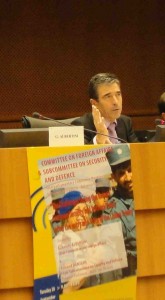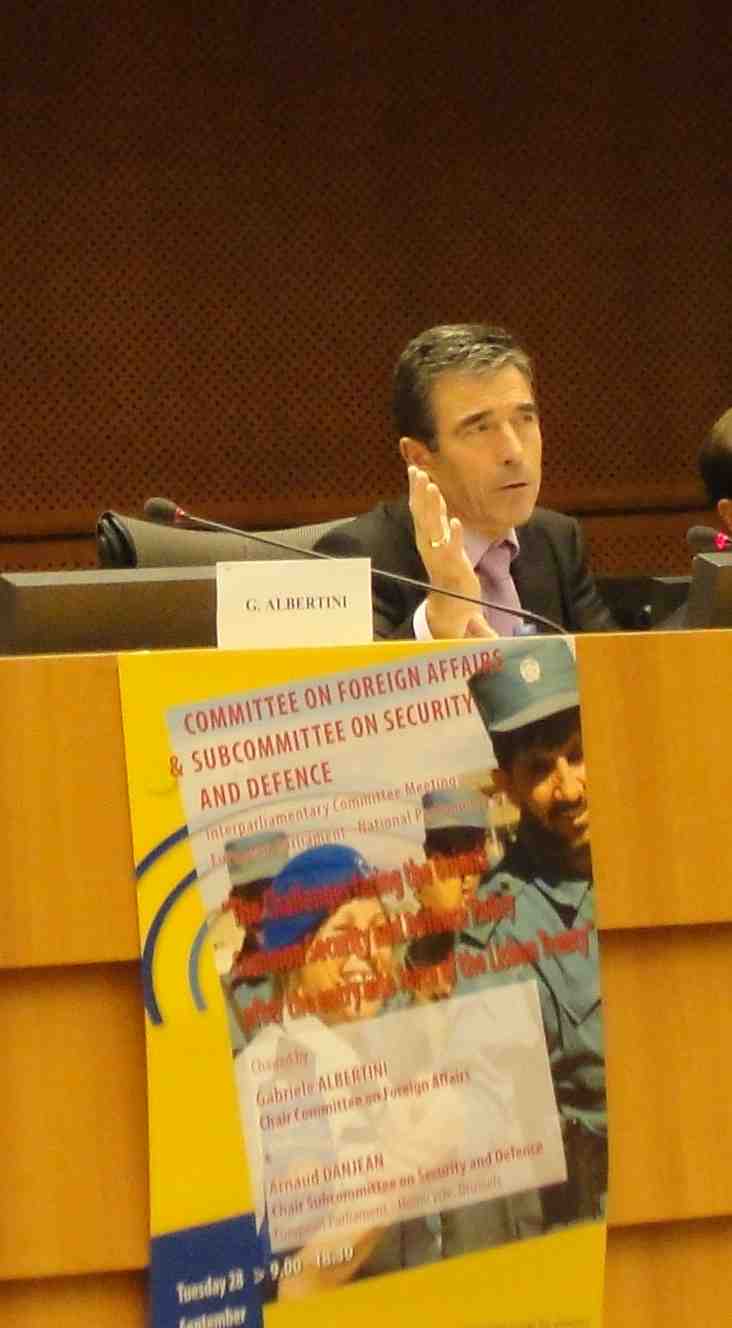NATO wants to create civilian unity, says Rasmussen

(BRUSSELS2) Speaking to national and European parliamentarians, who met this Tuesday in Brussels, NATO Secretary General Anders Fogh Rasmussen confirmed that in his various proposals he will make at the Heads of State and Government in Lisbon “to establish a small civilian capability within NATO ».
Sensing some fears among his interlocutors, he said: “ It is not a question of putting in place a capacity that can allow us to act by our own means. But an interface with other actors to strengthen civil development and reconstruction efforts. “Our experience in Kosovo and Afghanistan taught us that we needed a structure. Rasmussen would not specify how big this unit would be. When I questioned him he didn't want to say more. But it looks like she won't have just one or two people.
NATO has been trying to get a foothold in civilian life for several years. And we can see this creation as a long series of small steps. We can also consider that it comes out more from a future negotiation - with the European Union - Rasmussen thus keeping a pear for the thirst. Or a search for an escape from excessive pressure from personnel, a sort of lifeline. To avoid seeing the staff too reduced, it suffices to expand the tasks and therefore the function of the organization. Responding to a question from a deputy, however, he had this sentence: “We are trying to slim down our organization as much as possible, to have more muscles. But we need organization. »
Comment: A more than disturbing proposition
Whatever the interpretation, this proposition raises many questions. First, it presupposes that the civilian is the attribute of military action. Which is disturbing to say the least in modern political and philosophical construction, and contrary to all the rules enacted so far. Secondly, NATO remains a military organization, which functions with certain rules of democratic exception (no parliamentary control, no jurisdictional control, diplomatic immunity...). This can be justified for supreme security interests (to be discussed). But for civil actions, it is unjustifiable. Finally, NATO will duplicate or even compete with already existing organizations such as the European Union or the UN, but also with the civil structures of the States of the Alliance, such as the Germans of GTZ, the Americans of Us Aid or the British from DFID.
(Nicolas Gros-Verheyde)

I am military; I served in the field of civil-military cooperation (CIMIC) for many years, at the operational and strategic levels, nationally and within a unit within the framework of NATO.
My personal assessment of “building a small civilian capability within NATO to enhance civilian development and reconstruction efforts” is that the idea is excellent in itself; we should just delete “civilian” and “within NATO”. Why? Quite simply because civil organizations, governmental or intergovernmental, will never agree to be considered as being part of, or even subject to, a military organization, even less if it is NATO, and vice versa.
On the other hand, can we not rather imagine, at European level, the creation of a “small civil-military capability to strengthen civil development and reconstruction efforts”, which would be based on cooperation between all the parties (EU, NATO, IO/NGO), civil AND military, usually working in crisis management (before, during and after crises). This civilian capacity could be either permanent or adapted to current needs. It could be made up of civilians AND soldiers, each with recognized expertise in their field of crisis management.
Of course, from the idea to the realization!… And who would lead such a team?…